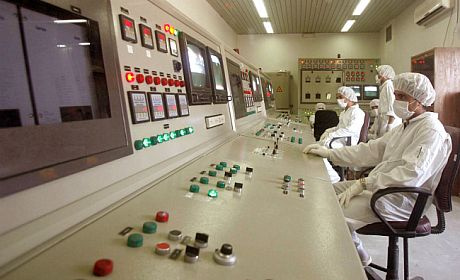Does Iran Have a Legal Right to Enrich Uranium? Yes.

The subject of the right to peaceful nuclear energy, recognized in Article IV(1) of the Nuclear Nonproliferation Treaty (NPT), has been of current interest in the context of Iran’s negotiations with the P5+1 regarding its nuclear program. One of the core concessions Iran is reportedly seeking from Western powers is a recognition of Iran’s right to enrich uranium, as a part of its indigenous fuel cycle.
Article IV(1) provides:
“Nothing in this Treaty shall be interpreted as affecting the inalienable right of all the Parties to the Treaty to develop research, production and use of nuclear energy for peaceful purposes without discrimination and in conformity with Articles I and II of this Treaty.”
In my 2011 book Interpreting the Nuclear Nonproliferation Treaty, I examined the Article IV(1) right, held by Iran and by all other states parties to the NPT. I interpreted this provision to constitute a full, free-standing right of all parties to the treaty, and not a contingent right, contrary to the interpretation of some Nuclear Weapon States (NWS) parties to the NPT. I concluded that this right was, according to the text, limited by the obligations of Non-nuclear Weapon States (NNWS) in Articles II and III of the treaty.
This means, simply, that all NPT parties have a right to engage in peaceful uses of nuclear materials. They are simply obligated in Article II not to manufacture a nuclear weapon with those materials, and in Article III to conclude a safeguards agreement with the IAEA to verify that nuclear materials are not diverted from peaceful to military use.
However, the question of the scope of this right is one that continues to be debated. Recently, US officials including Secretary of State John Kerry, have denied that uranium enrichment is included in the Article IV(1) right. However, these statements seem inconsistent with longstanding US practice of recognizing the legitimacy of uranium enrichment programs in many NNWS.
The question of just what exactly is the nature and scope of the right recognized in Article IV(1) of the NPT, and what are its juridical implications, raise some very deep issues of international law, and require careful interpretation of the provision.
Note that the text of Article IV(1) recognizes the scope of the right as extending to the development of “research, production and use of nuclear energy for peaceful purposes . . .” The production of nuclear energy from uranium requires many different steps in the fuel cycle process. On the front end of this cycle, it requires milling and mining, conversion, enrichment, and fuel fabrication, before fuel rods can be used in a reactor to generate, or produce, nuclear energy for peaceful use. The right to produce nuclear energy, therefore, by the plain meaning of its terms, would appear to encompass all of these necessary fuel cycle steps, inclusive of uranium enrichment.
In my view, the recognition by over 190 states parties to the NPT that all states parties have the inalienable right to peaceful nuclear energy production, which I interpret to include all elements of the full nuclear fuel cycle including uranium enrichment, strongly suggests that the right to peaceful nuclear energy production is one of the fundamental rights of states in international law. In my view, such a fundamental right of states should be understood to create in third parties, both states and international organizations, a legal obligation to respect those rights.
This means that other states and international organizations are under an international legal obligation not to act in serious prejudice of states’ fundamental rights. When states or international organization do act in serious prejudice of a state’s fundamental rights, that action is an internationally wrongful act, and implicates the international responsibility of the acting state or international organization.
So in summary, I conclude that Iran, like every other NPT state party, does have an inalienable, fundamental right to engage in uranium enrichment, as well as in the other necessary steps in the nuclear fuel cycle, in order to produce nuclear energy for peaceful purposes.
Iran’s request that the P5+1 recognize this right as part of a negotiated resolution to the dispute over Iran’s nuclear program, therefore, is simply a request to recognize a correct legal fact.

